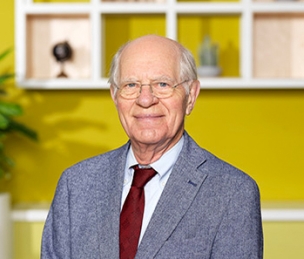Displaying 1 - 8 of 8
-
Levelt, W. J. M., Drenth, P., & Noort, E. (
Eds. ). (2012). Flawed science: The fraudulent research practices of social psychologist Diederik Stapel. Tilburg: Commissioned by the Tilburg University, University of Amsterdam and the University of Groningen.Abstract
Final report Stapel investigation -
Levelt, W. J. M. (1989). Speaking: From intention to articulation. Cambridge: The MIT Press.
Additional information
Speaking_Appendix_Bibliography.pdf -
Levelt, W. J. M. (1989). De connectionistische mode: Symbolische en subsymbolische modellen van het menselijk gedrag. In C. M. Brown, P. Hagoort, & T. Meijering (
Eds. ), Vensters op de geest: Cognitie op het snijvlak van filosofie en psychologie (pp. 202-219). Utrecht: Stichting Grafiet. -
Levelt, W. J. M. (1989). Hochleistung in Millisekunden: Sprechen und Sprache verstehen. Universitas, 44(511), 56-68.
-
Levelt, W. J. M. (1989). Working models of perception: Five general issues. In B. A. Elsendoorn, & H. Bouma (
Eds. ), Working models of perception (pp. 489-503). London: Academic Press. -
Levelt, W. J. M. (1973). Formele grammatica's in linguistiek en taalpsychologie (Vols. I-III). Deventer: Van Loghem Slaterus.
-
Levelt, W. J. M. (1973). Recente ontwikkelingen in de taalpsychologie. Forum der Letteren, 14(4), 235-254.
-
Levelt, W. J. M., & Bonarius, M. (1973). Suffixes as deep structure clues. Methodology and Science, 6(1), 7-37.
Abstract
Recent work on sentence recognition suggests that listeners use their knowledge of the language to directly infer deep structure syntactic relations from surface structure markers. Suffixes may be such clues, especially in agglutinative languages. A cross-language (Dutch-Finnish) experiment is reported, designed to investigate whether the suffix structure of Finnish words (as opposed to suffixless Dutch words) can facilitate prompted recall of sentences in case these suffixes differentiate between possible deep structures. The experiment, in which 80 subjects recall sentences at the occasion of prompt words, gives only slight confirmatory evidence. Meanwhile, another prompted recall effect (Blumenthal's) could not be replicated.

Share this page